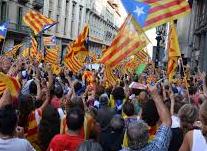The etymological origin of the term dyad is found in Latin. Specifically, it derives from “dyas, dyadis”, which can be translated as “union of two things”.
In our language , the term dyad is used accented on the letter I and refers to a couple whose members maintain a very close bond .
 The German sociologist and philosopher Georg Simmel is identified as the person responsible for the development of the notion of dyad. Simmel , analyzing the smallest social groups, appealed to the idea of dyad to refer to the group formed by two close friends or a romantic couple .
The German sociologist and philosopher Georg Simmel is identified as the person responsible for the development of the notion of dyad. Simmel , analyzing the smallest social groups, appealed to the idea of dyad to refer to the group formed by two close friends or a romantic couple .
In a dyad, according to the German, social interactions are more intense compared to what happens in groups with more members. This is because the attention is focused exclusively on the other member, without other people who can compete for it.
For this same reason, the ties are more significant and solid in a dyad. In any case, these groups of two members are also unstable because both must commit to the subsistence of the group, something that does not happen if there are more people (in a group of ten individuals, two or three members can desert but the group will continue to exist). .
In the same way, we must not overlook that within the fields of psychology and medicine, in general, we talk about the mother-child dyad. It is a term that makes clear the close relationship and emotional bond that exists between a mother and her child since she carries it inside her and that is increased once the baby is born.
Diada , without an accent on the I , is used in the Catalan language and, by extension, also began to be used in Spanish. The National Day of Catalonia , mentioned simply as Diada , is the National Day of Catalonia , a holiday commemorated every September 11 to remember the decline of Barcelona before the Bourbon army, which occurred in 1714 within the framework of the War of the Spanish Succession. .
When the Parliament of Catalonia was reestablished in 1980 , the dyada was instituted. During the day, floral offerings are made to Catalan heroes and different activities are carried out.
Specifically, among the activities carried out during Catalonia's Day we can highlight the offerings in the Moreras Cemetery, where many of the people who defended that land and who ended up falling are buried.
However, it should not be overlooked that the anthem of that autonomous community, “Els Segador”, is sung and that an institutional event is organized in the Parque de la Ciudadela. The Generalitat is the one that prepares the event in which different statements are made and in which different singers usually perform.
In addition, information stands about the Diada are placed in different emblematic places in Catalonia and floral offerings are made to the soldier Josep Moragues (1669 - 1715) and the jurist Rafael Casanova (1660 - 1743), who were key figures during the aforementioned War of Succession. .
